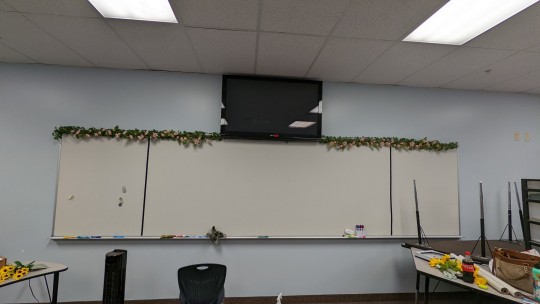#Secondary Education
Text
On August 22, Saskatchewan Premier Scott Moe and Education Minister Dustin Duncan announced new policies for schools that specifically target 2SLGBTQIA+ students. In the press release, Saskatchewan schools are now required to “seek parent/guardian permission when changing the preferred name and pronouns used by students under the age of 16 in the school.”
Duncan’s announcement was packaged with two other policies. The first requires parents to be informed about the sexual health curriculum “and have the option to decline their children’s participation.” The other requires boards of education to sever ties with third-party organizations “connected to sexual health education.”
A new low
The Canadian Civil Liberties Association (CCLA) condemned the move to require permission from parents to change names or pronouns in a press release, stating they will take legal action to protect student rights in the province. [...]
Continue Reading.
Tagging: @politicsofcanada
#cdnpoli#Saskatchewan#reactionary politics#transphobia#education#secondary education#Conservatives#sex education
603 notes
·
View notes
Text
I need to scream, I hate my schools website so much I fucking can’t I agh!
40 notes
·
View notes
Text

This is apparently being sold as a "north/south" divide in GCSE results but I don't necessarily see it that way (particularly if you looked at the south west in a bit more detail).
It relates, I'm pretty sure, to wealth (with the exception of London). Basically, the higher your household income, the better you'll do in school...
London is the exception because schools in London get funding the rest of the country can only dream of. Of course, a lot of people in London are pretty wealthy, too.
If we gave the North East the funding some London schools get, I reckon their results would improve too
154 notes
·
View notes
Text
PEN America’s November 2023 Report on Classroom Censorship:
“Of the 110 educational gag orders introduced this year, 39 bills would restrict how educators teach and discuss sexual orientation and gender identity — with about three out of every four of these modeled on Florida’s “Don’t Say Gay” law.
Over a quarter (29) of the 111 educational gag order bills target higher education, and 17 additional censorship bills focus on restricting the autonomy and governance of colleges and universities including DEI bans, tenure restrictions, curricular control bills, and accreditation restrictions.
Although race-focused gag orders were still half of the bills proposed in 2023, few of them passed, and only one bill (Missouri’s SB 42) explicitly targeted the 1619 Project, compared to 15 bills in 2022. This finding is a reflection of the fact that race-focused gag orders have proven to be overwhelmingly unpopular in the past two years.
A 2022 survey from APM Research/Pennsylvania State University indicated that only 13 percent of the public believes that state lawmakers should have a “great deal of influence” over whether or how racism and slavery are discussed in the classroom.
Educational gag orders have created an atmosphere of profound fear and anxiety for both public school educators and higher ed faculty. One of the most notable studies on this issue, a 2022 RAND Corporation survey of 8,000 K-12 educators, found that 52 percent of teachers in states with educational gag orders say that these laws have affected what and how they teach.”
4 notes
·
View notes
Text
just a reminder to check on your education major friends. we desperately need it
2 notes
·
View notes
Text
The teachers we need for the education we want: The global imperative to reverse the teacher shortage.

This year's World Teachers' Day, celebrated on 5 October, will focus on the theme of reversing the shortage by improving the appeal of the teaching profession. Celebrations will focus on the meaningfulness of being a teacher and the urgency of attracting and retaining qualified teachers into the profession. It will insist on the dual imperative of attracting youth to teaching programmes and
the imperatives to make the profession attractive forthose in service in orderto curb teacher attrition. From a lifelong learning perspective, the commemorations will cover the teaching profession at
different level of education, learning spaces and modalities
#world teachers day#5 october#unesco#tertiary education#primary education#secondary education#secondary teachers#primary teachers#tertiary teachers#teacher shortage#Education 2030
2 notes
·
View notes
Text

With Úrsula 💖💖💖💖
#friends#frienship#college#secondary school#secondary education#decades legacy#cancer constellation#cancer season#cancer moon#cancer sign
2 notes
·
View notes
Text
I'm supposed to be finishing up a research project report rn but I have thoughts and I want to put them out there.
So. I'm on one of my teaching placements atm (for those unfamiliar, as part of my bachelor of education degree every year I get sent out to a school for a period of time to observe classes and/or get practice teaching them). My mentor is a real mixed bag. I extremely appreciate the resources he has given me and the encouragement to develop my own teaching style, with him knowing just how diametrically different mine is to his.
One of numerous things I really can't get over is how hard-lined he is about this idea that "if a student isn't engaging in class, it's because they've made the choice not to engage and that's on them, I can't help them".
Sir. Sir what the heck?
I could rapid-fire list off so many reasons that a student wouldn't be engaging in class, whether it's a once off or a regular thing, none of which are the student's fault. There's just so much more going on, my guy.
First and foremost, I think a really telling thing to keep in mind is the continuing studies on school refusal, and how many kids refuse school temporarily or permanently, or at least try to. I'm sure many many people are familiar with the idea of a kid pretending to be sick to get out of going to school, or have done it yourself. In fact if this post manages to take off somehow I'll try to also make a poll to see how many of you have done that.
If students are faking sick to get out of school, there's a problem with the school. In fact, with the rate it occurs, that in and of itself makes clear a problem with the entire schooling system. Kids don't want to go, and we force them to anyway.
So there's that.
There's also just- kids can have trauma. kids can be disabled. kids can have a rough day. kids can be tired. they could be excited about something outside of school. they could have distracting relationship issues or successes. They are allowed to not pay attention. Teachers don't own student attention. they earn it.
I'll say that again.
Teachers don't own the attention of our students. We earn it.
Every time a teacher tells a student it's their fault for not being able to learn, they have caused harm. It's a known thing. It's in the research, it's in teacher training programs, and people gloss over it. A teacher's expectations on a student and their belief in the student's capacity to succeed has a causal link to their ability to learn and succeed and grow. It's an important factor.
And to not know that, or to adamantly refuse that disengagement could be anything but the student's fault? Makes you a shitty teacher. And look. If you're an educator, or you're considering being one, and you hold that mindset? I'm not just gonna meaninglessly be like "oh you're wrong, change your views or get out". No, my advice? Listen to your students. Let them know that you're willing to hear them out and take them seriously. Give them the benefit of the doubt and learn from them, so you can come to your own conclusions.
"But what if they take that as an opportunity to get away with lying?" Yeah okay, that's going to happen. Ask yourself this? Why do they feel the need to lie? Or perhaps why is that the pattern of behaviour they tend towards? What's made them see the opportunity of you listening to them and believing them and go "oh cool now I can make stuff up to get out of things". It's because they want to get out of things. Once you realise that, you can start asking why, and then you're getting somewhere.
Teachers: Listen to your students. Believe them. Believe in them. Give them the benefit of the doubt, and wonder if there's something more going on. There probably is.
#teaching#rant#rant turned essay ig#education#failing school system#educational trauma#secondary education
2 notes
·
View notes
Text
I submitted my lesson plan. Now it's simply a waiting game of "will I die before or after I receive the grade".
#college#this class will be the death of me#it stresses me out#so much pain#he gave me a 16% on my last one#yes i resubmitted and got a better grade#but there's no resubmissions on this one#which i think is unfair#because it's my third lesson plan#ever#this man is going to be the death of me#who knows what this'll get#lesson plan#teaching#secondary education
3 notes
·
View notes
Link
Help your self to my free high school level poetry analysis activity! Download today on Teacher Pay Teachers!
#poetry#education#englishteacher#ela#RobertFrost#themendingwall#secondary education#highschoolteacher
2 notes
·
View notes
Text
Monique LaGrange will get to keep her job as school board trustee for Red Deer Catholic Regional Schools (RDCRS), but it doesn’t come without a long list of consequences, do’s and don’ts.
It was Sept. 1 when LaGrange posted a story on her personal Facebook page comparing the 2SLGBTQ+ community to Nazism.
“Brainwashing is brainwashing,” the caption read on the post, with two photos underneath — the first of children waving Nazi flags, and the other with children waving rainbow Pride flags. [...]
Education Minister Demetrios Nicolaides confirmed to rdnewsNOW earlier this month that the board does indeed have the power under the Education Act to remove a trustee if they find it necessary. [...]
Continue Reading.
Tagging: @politicsofcanada
189 notes
·
View notes
Text
Remembering the English teacher I had around 16/17yo who had a brilliant idea. While teaching advertising language one day she tells us that her husband works in advertising and companies send him mock-ups of planned campaigns so she’s brought some in.
Can’t remember what product it was marketing but one of them was a pair of handcuffs in a red velvet lined box.
You’re really gonna mention your husband then show handcuffs he has to a class of late teens while you’re 7mos pregnant and not expect a reaction?!?
Us teachers really are the stupidest sometimes.
2 notes
·
View notes
Text
Temperament and learning
All professionals of education should understand one basic thing: do things to support your students' learning, not to weaken it. Probably everyone knows this, but they don't necessarily act on it. Not because they don’t care but because they don’t know they’re negatively impacting the learning of some of their students.
For example, for people with low adaptability it is important to know in advance what is going to happen and when. Therefore, the schedule, the timetable for a course, and the timing and deadlines for future assignments should be available before the semester or the course starts. Then these people can get prepared beforehand, and therefore feel safe, don't get stressed and learn better as their energy doesn’t go on stress management. Also especially to people with high regularity, but to people with low adaptability as well, it would be important that the schedule doesn’t change much and that there wouldn’t be any surprises as change and surprises only makes them stressed.
As another example, for people with low sensory threshold, it helps if there are no extraneous stimuli in the classroom that are irrelevant to the subject being taught. If there are colorful posters or art all over the place, their attention will be easily drawn to those and away from what the teacher is saying. Another problem is noise, which is known to disrupt everyone's learning, is particularly disturbing for people low sensory threshold. This problem can be alleviated by making sure the noise level in the classroom stays low, for example by keeping the classroom door closed or by limiting conversation to certain moments during the lesson, either at university by giving students discussion tasks a few times during the lecture, or in other forms of education by allocating part of the lesson to teacher-led teaching and part to other activities.
The younger the students, the more important it is to pay attention to these things, as kids have not yet developed adult-level self-regulation mechanisms to manage stress or keep their attention on the essentials. However, the importance of these should not be underestimated with university students or other adult students, because although they are likely to have developed the skills to cope with different situations already, very small things, such as publishing the course timetable in advance, are enough to improve their academic performance. Less stress, better ability to learn. That’s how simple it is.
In case you want to know more about temperament, check out this site
#education#learning#psychology#temperament#stress#stress management#science#teachers#professors#university#high school#junior high school#secondary education#primary education#school
1 note
·
View note
Text
Seems like the Telegraph (and by extension the Tories) are going after the teaching unions. I guess this means that maybe they are scared despite all the restrictive rules in place, the NEU might actually manage to organise a strike over the new pay deal- which is interesting. The pay deal is good for new teachers, but less good in terms of retaining experienced teachers. And I’m not sure it’s good enough that it’ll make a real difference in terms of recruitment, especially for shortage subjects.
Meanwhile, on twitter, I keep seeing people saying they are struggling to recruit experienced staff. I mean, you do the maths?
I can tell you what’s already happening in some (a lot of?) English state secondary schools:
-Can’t recruit for a lot of subjects (Science, Maths, Computing are the big ones, but others too).
-So departments are left short staffed, kids are taught by non-specialists, unqualified teachers, cover supervisors, a rotating cast of supply...
-Definitely can’t recruit for roles that need a bit of experience, like head of department- which puts more pressure on the other staff within that department, and again, isn’t great for the students.
-OR leads to people being overpromoted too early on, which often leads to bad leadership and problems within the department, and/or burnout for the person who’s been promoted.
-Being short staffed means less flexibility in terms of cover- if people are ill, and you can’t get supply in, the school shuts, as we saw last term in a lot of schools.
-Long term, these pressures mean more teachers leave, either to move to other schools that are better off, or to a different sort of job within education, or leave teaching altogether.
-Inevitably, this impacts on kids behaviour, engagement and outcomes, and the school becomes a less desirable place to work. Maybe it gets a crap Ofsted. The whole thing becomes a vicious cycle, from which it’s difficult for a school to escape from- and kids who aren’t able to go elsewhere don’t get the education they deserve (yes, there are huge issues with our education system and the curriculum itself, but it’s still better when it’s being delivered by consistent subject specialists.
Now, you might be reading this and thinking this only applies to “sink comps” or “inner city schools”, but that’s very much not true. The hardest places to recruit teachers are those where rent/property prices are highest, so yes, especially just outside London where teachers lose out on the extra London pay. And yes, maybe Bristol, etc. But also, your leafy comp in the South East. Anywhere along the “M4 corridor”, even the more desirable parts of the South West (particularly places where second home owners have pushed rents sky high).
I’ve never taught in e.g. Manchester, but my understanding is that schools up there find it easier to recruit (although that doesn’t necessarily mean it’s easy).
And, increasingly, this is trickling down to primary, too- people struggling to recruit experienced teachers in certain schools or parts of the country. You can’t, despite what the DfE seems to think, run a school entirely staffed by ECTs.
Now, to come back to the original point, I don’t actually think it’s just about pay- as you get up the pay scale, teacher pay isn’t bad (although it’s low compared to what, e.g. maths grads, can earn elsewhere). It’s also about the pressure teachers have been put under over the last three years, about general working conditions, about schools wanting to own you during term time (and sometimes the holidays too). Being a full time classroom teacher isn’t sustainable for a lot of people in England, anymore.
But I will also say, it’s easier to manage in a stressful job, when you’re not also worrying about how you are going to pay the rent- when you don’t have to take on extra work at the weekends or holidays to pay the bills.
Anyway, my point is this- if the Tory government are making noises against teaching unions, trying to pit parents against teachers, perhaps that’s a sign they are nervous. But what they should really be nervous about is the education system collapsing in on itself.
102 notes
·
View notes
Text
I started decorating my classroom and I'm obsessed with this!!!


3 notes
·
View notes
Text
Career planning guidelines for secondary school students

Career planning is the last thing on the minds of parents and students who are still in school. As students pass out of school, parents are in a hurry to push them to take admission to streams that are not relevant or interesting. To avoid the issues of drop-outs of courses, career exploration for high school students is important.

Career exploration for high school students is crucial for students
Siddhartha Public School offers career planning tips for school students to help them transition towards the right courses. Knowing their aptitude and interests allows children to plan for post-secondary education. As a CBSE school near Boduppal, we aim to make the children ready for careers of their choice.
The following post gives an insight into career planning tips for school students. Currently, there is a skill gap and unprecedented unemployment issues. The job industry requires the right people to work.
Avoid peer pressure & ignorance
Once the board exams are over, there is a huge pressure on children to choose the college. Currently, parents know of only 6-7 streams and push children towards it. Today, there are more than 250 career options available across India. Parents should explore them and let children expand their horizons. These careers are in demand and way beyond the usual options like Law, Management, Accounts, Science, Medicine, Computers & IT, and Engineering.
A thorough career assessment for secondary students will reveal various interests they have. They can take up studies and skill themselves to become suitable for professions of their choice. Career counsellors should be hired to make the assessments for making the right choices.
Effective career plans begin with clarity and the interests of all children. It is the basic foundation to move in the right direction after high school. Once the vision and goal are clear, the challenges and pressure from others are also minimised. Each child is aware of their strengths/weaknesses. Giving value to the strengths opens up job opportunities in the future.

Expecting the child to take up a stream where he/she cannot excel brings up fear of failure and rejection. Pressure from parents, friends, and relatives adds to the misery. Planning for post-secondary education depends also on parents and their awareness of new career options. Instead of pushing the children into only law, medicine, and engineering colleges, they can explore other options.
Children feel confident when they get 100% support from their parents. It encourages them to excel and move toward their dreams.
School-going children can undergo assessment sessions to understand where their interests lie. Tenth-standard students can build their goals based on the subjects of their choice. As they engage in critical thinking, it will also improve the overall profile. Both parents and children can match the information of new streams to pursue after higher secondary school.
Siddhartha Public School offers career planning guidelines for parents and students. If the parents are not aware of their child’s choices, they can ask the teachers for assistance. Instead of putting pressure on the child to follow a beaten path, let them move to greener pastures.
#Secondary Students#Secondary School#Secondary Education#High School Students#Career Planning#Career Options#Career Exploration
0 notes